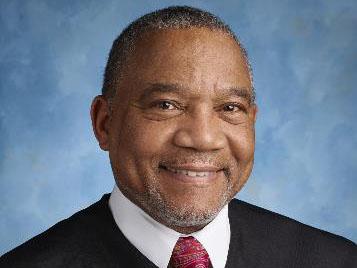US judge refuses to send low-level criminals to jail after six inmates die in four months
Decision continues debate in US over whether cash bail is unfair to poor defendants

Your support helps us to tell the story
From reproductive rights to climate change to Big Tech, The Independent is on the ground when the story is developing. Whether it's investigating the financials of Elon Musk's pro-Trump PAC or producing our latest documentary, 'The A Word', which shines a light on the American women fighting for reproductive rights, we know how important it is to parse out the facts from the messaging.
At such a critical moment in US history, we need reporters on the ground. Your donation allows us to keep sending journalists to speak to both sides of the story.
The Independent is trusted by Americans across the entire political spectrum. And unlike many other quality news outlets, we choose not to lock Americans out of our reporting and analysis with paywalls. We believe quality journalism should be available to everyone, paid for by those who can afford it.
Your support makes all the difference.A judge in Cleveland is refusing to send people accused of low-level crimes into the county jail system, citing safety concerns after six inmate deaths in four months.
The judge, Michael Nelson of Cleveland Municipal Court, said this week that he would release people charged with such crimes until their next court appearance, rather than holding them on bail, which many defendants cannot afford.
Defendants who are released must still agree to any conditions imposed, which could include electronic monitoring or regular check-ins.
“Six deaths means the jail is unsafe,” Mr Nelson said in a phone interview. “You shouldn’t die before we see you in court.”
Five of the six inmates were being held at the Cuyahoga County Jail in Cleveland, and one was at the Euclid City Jail, which is also run by the county, according to the county medical examiner.
The cause of death has yet to be determined in two of the cases, the most recent of which occurred Tuesday. That prisoner, Allan Martin Gomez Roman, 44, died four days after he was arrested on a warrant stemming from a cocaine possession charge, Cleveland.com reported. Two of the other men who died were found hanging in their cells and two had drugs in their systems at the time of their deaths, the authorities said.
In a statement, the Cuyahoga County sheriff, Clifford Pinkney, said he would ask the County Council to pay for an independent expert to assess the jail system.
He added that the jails were dealing with an influx of people struggling with addiction and psychological problems.
A report released last year by the Pretrial Justice Institute found that the Cuyahoga County Jail, with 2,100 beds, had been operating at over 100 per cent capacity, on average, in four of the previous five years.
The report, which was requested by local court officials and the American Civil Liberties Union, included a survey of all inmates released on a single day. It found that 73 per cent of them were black. In the latest census, 53 per cent of Cleveland’s residents were black.
Mr Nelson, a former president of the Cleveland NAACP, said the jails remained overcrowded and staffing levels were not sufficient to monitor all the inmates. He was loath to place people in those facilities because they could not afford bail, he said.
Cash bail, which requires defendants to put up money or other assets to win their freedom, has been widely criticised in recent years. Some states and municipalities have taken steps to reduce its use; California recently abolished cash bail altogether. (The change takes effect next year.)
In Ohio, Cleveland.com and The Plain Dealer spent more than a year examining the bail system in a series called “Justice for All.” Officials in parts of the state, including Cuyahoga County, have initiated changes to bail practices and a state-wide bill was introduced last year.
Critics of the cash bail system argue defendants should be evaluated based on the risk they present to public safety, not on their financial situation.
Low-income defendants often turn to bail bond agents, who function as the payday lenders of the criminal justice world. Commercial bail is a $2 billion industry and agents charge steep fees and can even arrest their clients.
Mr Nelson said the most recent death underscored the need to change bail practices and reduce overcrowding and strain on the jail system.
“If the balance of the county had implemented bail bond reform, there’s a good chance that young man would not be in jail, period,” he said.
The New York Times
Subscribe to Independent Premium to bookmark this article
Want to bookmark your favourite articles and stories to read or reference later? Start your Independent Premium subscription today.
Join our commenting forum
Join thought-provoking conversations, follow other Independent readers and see their replies
Comments